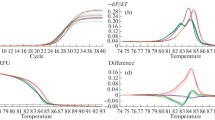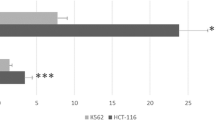Abstract
Arg72Pro SNP of p53 has been associated with many types of cancer as well as with survival and longevity. We evaluated the Arg72Pro SNP frequencies of a Brazilian birth cohort and their association with current, demographic and birth epidemiological parameters available. In 1982, all hospital births of Pelotas, southern Brazil, were identified and studied prospectively. In 2004–5, blood samples were collected and DNA extracted. PCR-RFLP was used to genotype the Arg72Pro SNP in 3794 individual samples of the Brazil birth cohort and DNA sequencing was performed to confirm the genotypes. The genotype distribution, which was in Hardy–Weinberg equilibrium, showed a predominance of the arginine amino acid with a frequency of 46.9% Arg/Arg, 42.2% Arg/Pro and 10.9% Pro/Pro. The allele frequency was 0.68 of Arginine and 0.32 of Proline. The Arg72Pro SNP genotype and allelic frequency were related to skin colour where proline amino acid was observed more among black subjects, while arginine amino acid was observed more among white subjects. The individuals without family history of cancer and those with low birth weight were associated with arginine amino acid. The Arg72Pro SNP was strongly associated with important epidemiological variables confirming that genetic profiles on cohort studies can improve our understanding of the susceptibility of diseases and its risk factors.
Similar content being viewed by others
References
Barros FC, Victora CG, Horta BL and Gigante DP 2008 Methodology of the Pelotas birth cohort study from 1982 to 2004–5, Southern Brazil. Rev. Saude Publica 42 Suppl 2 7–15
Bonafe M, Olivieri F, Mari D, Baggio G, Mattace R, Berardelli M, Sansoni P, De BG, et al. 1999 P53 codon 72 polymorphism and longevity: additional data on centenarians from continental Italy and Sardinia. Am. J. Hum. Genet. 65 1782–1785
Bookman EB, McAllister K, Gillanders E, Wanke K, Balshaw D, Rutter J, Reedy J, Shaughnessy D, et al. 2011 Gene-environment interplay in common complex diseases: forging an integrative model-recommendations from an NIH workshop. Genet. Epidemiol. 35 217–225
Choi J and Donehower LA 1999 p53 in embryonic development: maintaining a fine balance. Cell Mol. Life Sci. 55 38–47
Chosdol K, Ahuja A, Rathore A, Misra A, Mir SH, Chattopadhyay P and Sinha S 2002 Study of p53 codon 72 polymorphism in various ethnic groups of North India. Curr. Sci. 82 1253–1255
Cui R, Widlund HR, Feige E, Lin JY, Wilensky DL, Igras VE, D’Orazio J, Fung CY, Schanbacher CF, Granter SR and Fisher DE 2007 Central role of p53 in the suntan response and pathologic hyperpigmentation. Cell 128 853–864
Danilova N, Sakamoto KM and Lin S 2008 Role of p53 family in birth defects: lessons from zebrafish. Birth Defects Res. C. Embryo. Today 84 215–227
De Moura Gallo CV, Azevedo E Silva Mendonca, de Moraes E, Olivier M and Hainaut P 2005 TP53 mutations as biomarkers for cancer epidemiology in Latin America: current knowledge and perspectives. Mutat. Res. 589 192–207
Donehower LA 2005 p53: guardian AND suppressor of longevity? Exp. Gerontol. 40 7–9
Dumont P, Leu JI, Della Pietra AC, George DL and Murphy M 2003 The codon 72 polymorphic variants of p53 have markedly different apoptotic potential. Nat. Genet. 33 357–365
Granja F, Morari J, Morari EC, Correa LA, Assumpcao LV and Ward LS 2004 Proline homozygosity in codon 72 of p53 is a factor of susceptibility for thyroid cancer. Cancer Lett. 210 151–157
Havill LM and Dyer TD 2005 Association mapping: methodologies, strategies and issues. Genet. Epidemiol. 29 Suppl 1 S77-S85
Hu W 2009 The role of p53 gene family in reproduction. Cold Spring Harb. Perspect. Biol. 1 a001073
Jiang DK, Ren WH, Yao L, Wang WZ, Peng B and Yu L 2010 Meta-analysis of association between TP53 Arg72Pro polymorphism and bladder cancer risk. Urology 76 765–767
Jiang DK, Yao L, Wang WZ, Peng B, Ren WH, Yang XM and Yu L 2011 TP53 Arg72Pro polymorphism is associated with esophageal cancer risk: a meta-analysis. World J. Gastroenterol. 17 1227–1233
Kalemi TG, Lambropoulos AF, Gueorguiev M, Chrisafi S, Papazisis KT and Kotsis A 2005 The association of p53 mutations and p53 codon 72, Her 2 codon 655 and MTHFR C677T polymorphisms with breast cancer in Northern Greece. Cancer Lett. 222 57–65
Leong NM, Mignone LI, Newcomb PA, Titus-Ernstoff L, Baron JA, Trentham-Dietz A, Stampfer MJ, Willett WC and Egan KM 2003 Early life risk factors in cancer: the relation of birth weight to adult obesity. Int. J. Cancer 103 789–791
Lin YC, Huang HI, Wang LH, Tsai CC, Lung O, Dai CY, Yu ML, Ho CK and Chen CH 2008 Polymorphisms of COX-2 -765G>C and p53 codon 72 and risks of oral squamous cell carcinoma in a Taiwan population. Oral Oncol. 44 798–804
Miller AJ and Tsao H 2010 New insights into pigmentary pathways and skin cancer. Br. J. Dermatol. 162 22–28
Miller SA, Dykes DD and Polesky HF 1988 A simple salting out procedure for extracting DNA from human nucleated cells. Nucleic Acids Res. 16 1215
Nazmi A, Gonzalez DC, Oliveira IO, Horta BL, Gigante DP and Victora CG 2009 Life course weight gain and C-reactive protein levels in young adults: findings from a Brazilian birth cohort. Am. J. Hum. Biol. 21 192–199
Nazmi A, Oliveira IO and Victora CG 2008 Correlates of C-reactive protein levels in young adults: a population-based cohort study of 3827 subjects in Brazil. Braz. J. Med. Biol. Res. 41 357–367
Olivier M, Hollstein M and Hainaut P 2010 TP53 Mutations in Human Cancers: Origins, Consequences and Clinical Use. Cold Spring Harb. Perspect. Biol. 2 a001008
Orsted DD, Bojesen SE, Tybjaerg-Hansen A and Nordestgaard BG 2007 Tumor suppressor p53 Arg72Pro polymorphism and longevity, cancer survival and risk of cancer in the general population. J. Exp. Med. 204 1295–1301
Pandith AA, Shah ZA, Khan NP, Rasool R, Afroze D, Yousuf A, Wani S and Siddiqi M 2010 Role of TP53 Arg72Pro polymorphism in urinary bladder cancer predisposition and predictive impact of proline related genotype in advanced tumors in an ethnic Kashmiri population. Cancer Genet. Cytogenet. 203 263–268
Perez LO, Abba MC, Dulout FN and Golijow CD 2006 Evaluation of p53 codon 72 polymorphism in adenocarcinomas of the colon and rectum in La Plata, Argentina. World J. Gastroenterol. 12 1426–1429
Pietsch EC, Humbey O and Murphy ME 2006 Polymorphisms in the p53 pathway. Oncogene 25 1602–1611
Rossner P Jr, Tabashidze N, Dostal M, Novakova Z, Chvatalova I, Spatova M and Sram RJ 2010 Genetic, biochemical and environmental factors associated with pregnancy outcomes in newborns from the Czech Republic. Environ Health Perspect. 119 265–271
Sharma S, Murphy A, Howrylak J, Himes B, Cho MH, Chu JH, Hunninghake GM, Fuhlbrigge A, et al. 2011 The impact of self-identified race on epidemiologic studies of gene expression. Genet. Epidemiol. 35 93–101
Shi H and Su B 2011 Molecular adaptation of modern human populations. Int. J. Evol. Biol. 2011 1–8
Shi H, Tan SJ, Zhong H, Hu W, Levine A, Xiao CJ, Peng Y, Qi XB, Shou WH, Ma RL, Li Y, Su B and Lu X 2009 Winter temperature and UV are tightly linked to genetic changes in the p53 tumor suppressor pathway in Eastern Asia. Am. J. Hum. Genet. 84 534–541
Sucheston L, Witonsky DB, Hastings D, Yildiz O, Clark VJ, Di RA and Onel K 2011 Natural selection and functional genetic variation in the p53 pathway. Hum. Mol. Genet. 20 1502–1508
Suh Y and Vijg J 2005 SNP discovery in associating genetic variation with human disease phenotypes. Mutat. Res. 573 41–53
Thomas M, Kalita A, Labrecque S, Pim D, Banks L and Matlashewski G 1999 Two polymorphic variants of wild-type p53 differ biochemically and biologically. Mol. Cell Biol. 19 1092–1100
Victora CG and Barros FC 2006 Cohort profile: the 1982 Pelotas (Brazil) birth cohort study. Int. J. Epidemiol. 35 237–242
Wang YC, Lee HS, Chen SK, Chang YY and Chen CY 1999 Prognostic significance of p53 codon 72 polymorphism in lung carcinomas. Eur. J. Cancer 35 226–230
Whibley C, Pharoah PD and Hollstein M 2009 p53 polymorphisms: cancer implications. Nat. Rev. Cancer 9 95–107
Ye F, Zhang J, Cheng Q, Shen J and Chen H 2010 p53 Codon 72 polymorphism is associated with occurrence of cervical carcinoma in the Chinese population. Cancer Lett. 287 117–121
Yi SY and Lee WJ 2006 A p53 genetic polymorphism of gastric cancer: difference between early gastric cancer and advanced gastric cancer. World J. Gastroenterol. 12 6536–653
Acknowledgements
This work was supported by the World Health Organization (Department of Child and Adolescent Health) and the Welcome Trusts initiative entitled Major Awards for Latin America on Health Consequences of Population Change. Earlier phases of the 1982 cohort study were funded by the International Development Research Center (Canada), the World Health Organization (Department of Child and Adolescent Health and Development, and Human Reproduction Programme), the Overseas Development Administration (United Kingdom), the United Nations Development Fund for Women, the National Program for Centers of Excellence (Brazil), the National Research Council (Brazil) and the Ministry of Health (Brazil). This work was also supported by Brazilian CNPq and FAPERGS. HST was supported by CAPES and FPH was supported by FAPERGS.
Author information
Authors and Affiliations
Corresponding author
Additional information
Corresponding editor: Sarah H Elsea
[Thurow HS, Haack R, Hartwig FP, de Oliveira IO, Dellagostin OA, Gigante DP, Horta BL, Collares T and Seixas FK 2011 TP53 gene polymorphism: Importance to cancer, ethnicity and birth weight in a Brazilian cohort. J. Biosci. 36 1–9] DOI
Rights and permissions
About this article
Cite this article
Thurow, H.S., Haack, R., Hartwig, F.P. et al. TP53 gene polymorphism: Importance to cancer, ethnicity and birth weight in a Brazilian cohort. J Biosci 36, 823–831 (2011). https://doi.org/10.1007/s12038-011-9147-5
Received:
Accepted:
Published:
Issue Date:
DOI: https://doi.org/10.1007/s12038-011-9147-5




